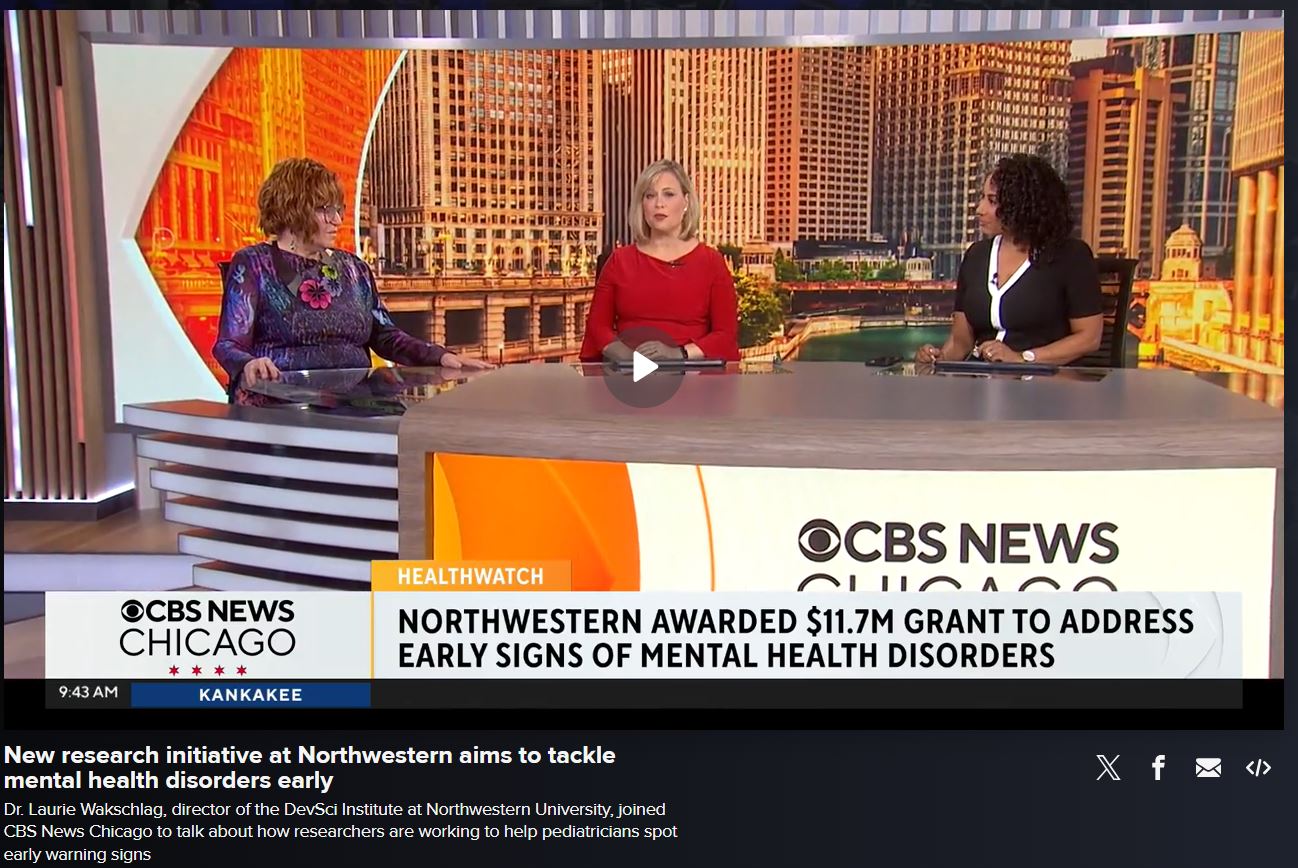Mental Health, Earlier Center
The youth mental health crisis starts well before school age, with more than 10 million young children affected in the US alone. Risk for mental health problems can be identified as young as age 2 when developmental evidence-based tools are used. To date, there is no clinical standard for doing so and a solution geared to improving children’s mental health at the population level is sorely needed. Intervening before diagnosis is far more clinically and cost effective and improves young children’s self-regulation skills (i.e., managing emotions and behavior) in a manner that improves school readiness and social functioning.
To address, DevSci has launched a first of its kind Mental Health, Earlier Center co-led by scientists from the Spencer Fox Eccles School of Medicine at the University of Utah. This $11.7 million grant from the National Institute of Mental Health (NIMH) is designed to move the dial on the youth mental health crisis by targeting early warning signs of mental health risk in toddlers rather than waiting until diagnosable and severe conditions are present. Behavioral risk is most responsive to support during this malleable early childhood period. For population impact and equitable reach, the Center is a partnership with three pediatric health systems: AllianceChicago and Ann & Robert H. Lurie Children’s Hospital in Illinois and Nemours Children’s Health in Delaware. The Center will prepare and implement an evidence-based risk calculator, known as Developmental Early Childhood Instrument for Deciding Equitably for Mental Health (“DECIDE”) Tool that will generate each individual toddler’s risk of early onsetting mental health problems and refer those at risk to digital, evidence-based supportive family prevention. The DECIDE risk calculator is akin to those used in screening for cardiovascular risk in adult primary care and now brings this precision medicine approach to pediatric mental health care. This early mental health risk identification and prevention will be clinically integrated into routine pediatric well-checks at the collaborating pediatric sites. The Center will also collaborate with these pediatric health systems to provide specialized trainings to pediatricians for family centered discussions about young children’s mental health to provide clinicians with strategies that support developmentally-and culturally informed conversations with diverse families and, then will test the impact of this training on pediatricians’ confidence and sense of effectiveness in delivering early mental health preventive care. The Center will also support research that evaluates health system impacts of the intervention and support novel strategies for heightening diverse families’ engagement in prevention activities. The Center will also support training and workforce development in primary care based, equitable mental health prevention in community-based pediatric care.
The Center is co-directed by implementation scientist, J.D. Smith, PhD (University of Utah) and developmental/clinical psychologist, Laurie Wakschlag, PhD (Northwestern) and includes collaborations with over three dozen multidisciplinary scientists including pediatricians, child psychiatrists, health economists, population health experts, prevention and implementation scientists, developmental psychologists and community engaged researchers representing 6 Universities and the three pediatric health systems. By accelerating the science-to-impact pathway via integrating clinical practice, cutting-edge research, and community collaboration, the Mental Health, Earlier Center seeks to improve the health and wellbeing of young children and families with diverse lived experience as early as possible in development to provide a sturdy foundation for life-course health. The children can’t wait. The time is now.
The Center website is in formation. More details on the Center’s initiatives and impact will be available soon, so stay tuned as we continue to develop this critical new resource. For more information for families, clinicians or scientists, please email devsci@northwestern.edu. Email devsci@northwestern.edu as well if you would like to be on the Center’s mailing list.
Watch CBS News Coverage on Our Mental Health, Earlier Center
Read More:
Northwestern to promote toddler mental health with $11.7 million NIMH grant
